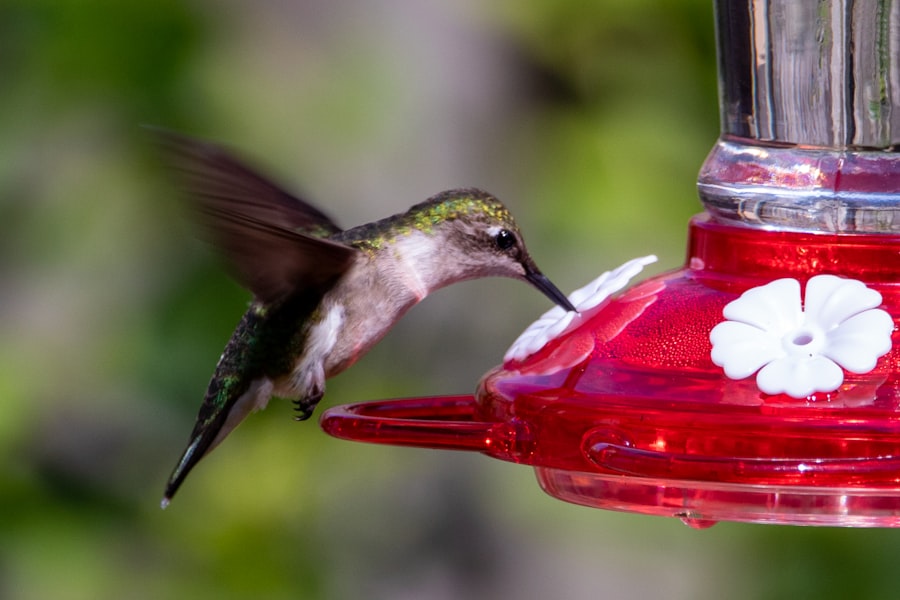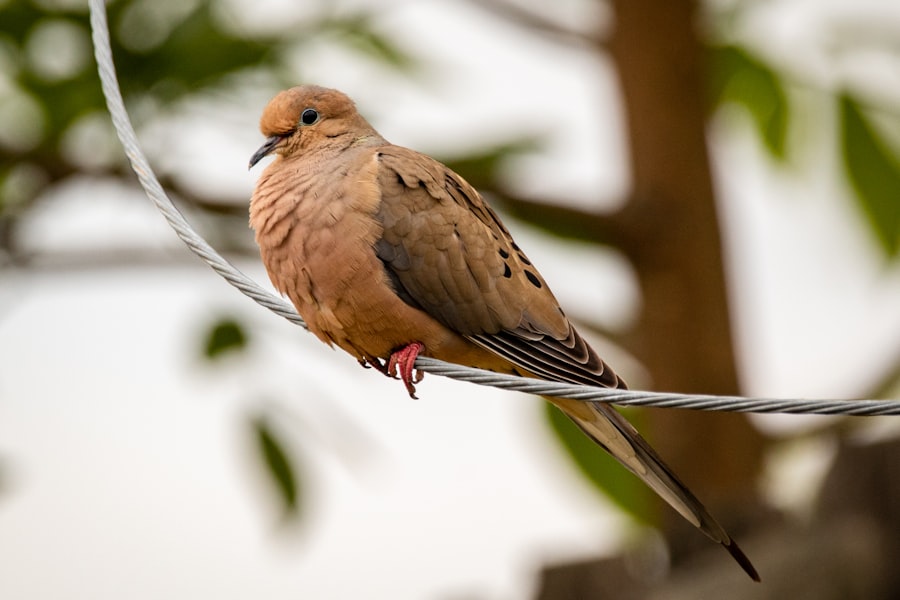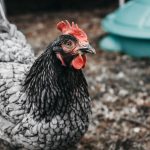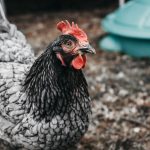When selecting a chicken breed for a backyard flock, several factors should be considered. Climate is a crucial consideration, as some breeds are better adapted to cold weather, while others thrive in warmer conditions. The intended purpose of the flock is also important, whether it’s for egg production, meat production, or companionship.
Different breeds excel in these areas, with some known for high egg-laying capacity, others for meat quality, and some for their friendly nature. Space availability is another key factor. Certain breeds are more suitable for confined areas, while others require more room to roam and forage.
The size of the chickens is also relevant, with bantam breeds being smaller and requiring less space compared to standard breeds. Temperament is an important consideration, especially for families with children or first-time chicken owners. Some breeds are known for their docile and friendly nature, while others may be more flighty or aggressive.
Noise level should also be taken into account, particularly in urban settings or areas with close neighbors, as some breeds are more vocal than others. For those primarily interested in egg production, breeds known for their prolific laying should be chosen. Conversely, those focused on meat production should select breeds recognized for their meat quality and growth rate.
Ultimately, the ideal chicken breed depends on the specific needs and preferences of the owner. Thorough research into different breeds and careful consideration of individual circumstances are essential for making the best choice.
Table of Contents
- 1 Building a Coop and Run
- 2 Feeding and Watering Your Chickens
- 3 Health and Veterinary Care
- 4 Egg Collection and Care
- 5 Dealing with Predators and Pests
- 6 Legal Requirements and Regulations
- 7 FAQs
- 7.1 What are the benefits of keeping chickens in Australia?
- 7.2 What are the legal requirements for keeping chickens in Australia?
- 7.3 What do chickens need to thrive in Australia?
- 7.4 What are some common health issues for chickens in Australia?
- 7.5 How can I protect my chickens from predators in Australia?
- 7.6 What should I consider before getting chickens in Australia?
Key Takeaways
- Consider the climate, space, and purpose of raising chickens when choosing the right breed
- Build a secure and spacious coop and run to protect chickens from predators and provide adequate space for exercise
- Provide a balanced diet and clean water for your chickens to ensure their health and productivity
- Regularly monitor the health of your chickens and seek veterinary care when necessary
- Collect eggs daily and store them properly to maintain freshness and quality
- Implement measures to protect chickens from predators and manage pests in and around the coop
- Familiarize yourself with local regulations and requirements for keeping chickens as pets or for egg production
Building a Coop and Run
Coop Considerations
When building a coop, it’s essential to consider the size of your flock and the space they’ll need to be comfortable. A good rule of thumb is to allow at least 2-3 square feet of space per chicken inside the coop. Additionally, make sure the coop is well-ventilated and provides protection from predators and the elements. It’s also important to include nesting boxes for your hens to lay their eggs, as well as roosting bars for them to perch on at night.
Run Requirements
When building a run for your chickens, it’s crucial to provide plenty of space for them to roam and forage. Consider using wire mesh to enclose the run and prevent predators from getting in. You’ll also want to provide some form of shelter within the run, such as a small coop or covered area, where your chickens can seek refuge from the sun, rain, or snow.
Enriching the Run
Additionally, consider adding some form of enrichment to the run, such as perches, dust baths, or hanging treats, to keep your chickens entertained and stimulated. This will help ensure they stay happy and healthy.
Securing the Run
Finally, make sure the run is secure and predator-proof, with no gaps or weak spots where predators could gain access. Building a coop and run for your backyard flock is an important step in providing them with a safe and comfortable living environment, so take the time to plan and build a setup that meets their needs.
Feeding and Watering Your Chickens

Feeding and watering your chickens is an essential part of caring for your backyard flock. A balanced diet is crucial for their health and well-being, so it’s important to provide them with a high-quality feed that meets their nutritional needs. When it comes to feeding your chickens, there are several options to consider.
You can choose to feed them a commercial poultry feed, which is formulated to provide all the essential nutrients they need. Alternatively, you can supplement their diet with kitchen scraps, fruits, vegetables, and grains. Just be sure to avoid feeding them anything that’s toxic or harmful to chickens, such as avocado, chocolate, or raw beans.
In addition to providing a balanced diet, it’s important to ensure that your chickens have access to clean and fresh water at all times. Chickens can drink a surprising amount of water each day, especially during hot weather or when laying eggs, so it’s important to provide them with a constant supply. Consider using a waterer that’s designed specifically for chickens, as these are less likely to become contaminated with dirt or droppings.
Additionally, make sure the waterer is placed at a height that’s easily accessible to all of your chickens, including any smaller or younger birds. Regularly clean and refill the waterer to ensure that your chickens always have access to clean water. By providing your chickens with a balanced diet and access to clean water, you’ll be helping to keep them healthy and happy.
Health and Veterinary Care
Keeping your backyard flock healthy is an important part of raising chickens. Regular health checks and veterinary care can help prevent illness and ensure that any health issues are caught early. One of the most important aspects of maintaining your chickens’ health is keeping their living environment clean and sanitary.
Regularly clean out their coop and run, removing any droppings or soiled bedding, to prevent the buildup of bacteria and parasites. Additionally, provide your chickens with plenty of space to roam and forage, as this can help prevent boredom and reduce stress, which can lead to health problems. It’s also important to keep an eye on your chickens’ behavior and appearance.
Look out for any signs of illness or injury, such as lethargy, loss of appetite, abnormal droppings, or changes in feather condition. If you notice any concerning symptoms, it’s important to seek veterinary care as soon as possible. Many common chicken health issues can be easily treated if caught early, so don’t hesitate to consult a veterinarian if you have any concerns about your flock’s health.
Additionally, consider establishing a relationship with a poultry veterinarian who can provide regular check-ups and advice on keeping your chickens healthy. By staying proactive about your chickens’ health and seeking veterinary care when needed, you can help ensure that your backyard flock stays happy and healthy.
Egg Collection and Care
If you’re raising chickens for their eggs, it’s important to know how to properly collect and care for them. The timing of egg collection can impact both the quality of the eggs and the behavior of your hens. It’s best to collect eggs at least once a day to prevent them from getting dirty or broken.
If eggs are left in the nest for too long, hens may start pecking at them or even eating them, which can become a difficult habit to break. When collecting eggs from the nest boxes, handle them carefully to avoid cracking or breaking them. It’s best not to wash eggs unless absolutely necessary because they have a natural protective coating that helps keep out bacteria.
If an egg is dirty or soiled with droppings, use a dry cloth or sandpaper to gently remove any debris before storing it in a cool place until use. To ensure that eggs stay fresh longer, store them with the pointed end down in an egg carton in the refrigerator. This helps keep the yolk centered and prevents it from touching the shell membrane which can cause spoilage over time.
Dealing with Predators and Pests

Securing Your Coop and Run
To keep predators at bay, it’s important to secure your coop and run with sturdy fencing that extends underground to prevent digging animals from gaining access. Additionally, consider installing motion-activated lights or sound devices near your coop to deter nocturnal predators such as raccoons or foxes.
Predator-Proofing Your Coop
You can also use predator-proof latches on coop doors and windows to prevent animals from forcing their way inside. This will provide an extra layer of protection for your flock.
Managing Pests
In addition to predators, pests such as mites, lice, and rodents can also pose a threat to your flock’s health. Regularly inspect your coop for signs of pests such as red mites or lice on your chickens’ feathers or skin. If you notice any signs of infestation, take immediate action by cleaning out the coop thoroughly and treating your chickens with appropriate pest control products. It’s also important to keep food storage areas secure and clean up any spilled feed promptly to prevent attracting rodents or other pests.
Legal Requirements and Regulations
Before starting a backyard flock, it’s important to familiarize yourself with any legal requirements or regulations that may apply in your area. Some cities or neighborhoods have specific zoning laws or ordinances that dictate whether or not you’re allowed to keep chickens on your property. Additionally, there may be regulations regarding the number of chickens you’re allowed to keep, as well as rules about coop size and placement.
It’s also important to consider any noise ordinances that may apply if you live in an urban area where crowing roosters could potentially disturb neighbors. Before starting your backyard flock, check with your local government or animal control office to find out what regulations apply in your area. By familiarizing yourself with legal requirements and regulations before starting a backyard flock, you can ensure that you’re in compliance with local laws and avoid any potential issues down the road.
In conclusion, raising backyard chickens can be a rewarding experience that provides fresh eggs, natural pest control in your yard or garden, and even companionship with these charming birds. By carefully considering the breed of chicken that best suits your needs and environment; building a secure coop and run; providing proper nutrition; monitoring their health; collecting eggs; protecting them from predators; and understanding legal requirements; you can create a safe and healthy environment for your feathered friends while enjoying all the benefits they have to offer.
If you’re interested in learning more about the breeding habits of geese, you should check out this article on how many eggs geese lay. It provides valuable information on the egg-laying habits of geese and can be a great resource for anyone looking to expand their knowledge on poultry farming.
FAQs
What are the benefits of keeping chickens in Australia?
Keeping chickens in Australia can provide a sustainable source of fresh eggs, natural pest control in the garden, and a source of organic fertilizer for the soil.
What are the legal requirements for keeping chickens in Australia?
The legal requirements for keeping chickens in Australia vary by state and local council. Generally, there are regulations regarding the number of chickens allowed, coop size, and distance from neighboring properties. It is important to check with local authorities for specific regulations.
What do chickens need to thrive in Australia?
Chickens in Australia need a secure and predator-proof coop, access to fresh water, a balanced diet of commercial feed and kitchen scraps, and space to roam and forage.
What are some common health issues for chickens in Australia?
Common health issues for chickens in Australia include mites and lice infestations, respiratory infections, and egg-laying problems. Regular health checks and proper coop maintenance can help prevent these issues.
How can I protect my chickens from predators in Australia?
To protect chickens from predators in Australia, it is important to secure the coop with strong wire mesh, lock the coop at night, and consider using motion-activated lights or alarms to deter predators.
What should I consider before getting chickens in Australia?
Before getting chickens in Australia, it is important to consider local regulations, the amount of space available for a coop and run, the time and effort required for daily care, and the long-term commitment to caring for the chickens.
Meet Walter, the feathered-friend fanatic of Florida! Nestled in the sunshine state, Walter struts through life with his feathered companions, clucking his way to happiness. With a coop that’s fancier than a five-star hotel, he’s the Don Juan of the chicken world. When he’s not teaching his hens to do the cha-cha, you’ll find him in a heated debate with his prized rooster, Sir Clucks-a-Lot. Walter’s poultry passion is no yolk; he’s the sunny-side-up guy you never knew you needed in your flock of friends!







